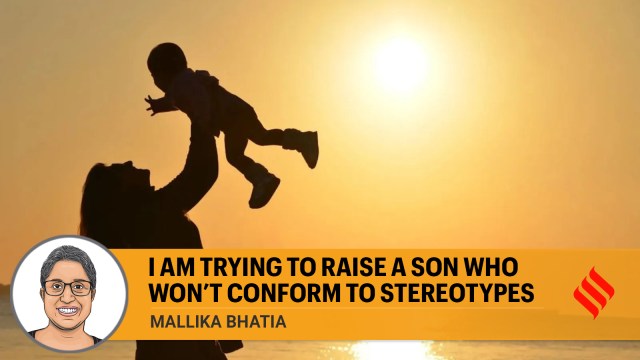
I remember the sinking feeling in my heart when the doctor said, “It’s a boy”.
No, no, no. This can’t be happening to me. I can’t have a boy. I have a four-year-old daughter at home. I know how to love a girl, how to raise her, or rather, how “not” to raise her. But a boy? What would I do with him?
It felt like a cruel joke, a twist of fate I hadn’t prepared for.
The doctor, gentle and knowing, smiled at me. “Focus on the fact that your child is healthy, the rest will follow,” she said.
Of course. What choice did I have? I thought to myself.
We had presumed we had it all figured out. The second child would inherit everything from the first: Clothes, toys, even the unspoken roadmap of how we envisioned parenting. We had a girl’s name ready. We had already declared to our families that this child, unlike our first-born, would take my surname instead of my husband’s.
But now, a new plan had unravelled, the one I knew not how to execute. On my way back from the clinic, I tried to think of boys that gave me comfort. Mentally sifted through the list of all the people I knew — their sons, their brothers. Anything to give me a glimmer of hope. Only when I was about to reach home did I remember my friend Sonal’s boys. They were gentle and grounded — a consolation that raising good men was possible.
The rest of my time went into making mental notes about everything I wanted my son to do, all that I wanted him to learn and follow. Was I overthinking? Over-planning?
Maybe.
But I had seen enough examples of boys who found humour in yanking their classmate’s ponytail, and grown men who couldn’t sew a button back on to their own shirts. Within my circle, I knew boys who were growing up believing that it was their sister’s duty to serve them. Men who needed the suitcases for their work trip to be packed by their wives.
I didn’t allow myself to think of the kinds I read about in the newspapers.
No, I wasn’t overthinking. I was preparing. Preparing to raise a boy I could call my own. Proudly.
I did have examples around me, the ones I could draw inspiration from, but they were far too few. I needed a tribe, yet all I found were the ones pretending to be leaders. I needed team players, boys who could cry without fear of being judged, and men who could use a pressure cooker as comfortably as pens and keyboards.
I turned to my husband who echoed my sentiments. In him I had found my teammate, and together we decided to raise a boy who knew how to be gentle.
At six, I let my son deck me up. He picks out my earrings and closes the latch of my chain when I am heading out. It teaches him to be gentle. It helps him learn respect and practise patience. It cultivates the concept that love is not just admiration, it seeks involvement.
He loves dressing up as Spiderman while he practises sewing on buttons. He has volunteered to mend everyone’s buttonless shirts, provided we let him choose the “goldenest” button possible. When on salad duty, he turns the red of carrots into flowers and the green from cucumbers into stems and leaves.
Both sewing and kitchen work teach him the essentials; survival and meditation. Both activities need concentration, precision, and the right plan. I would rather let him prick his fingers with the needle now, than poke someone else later. My hope is that he learns that his power lies not in dominance, but in execution with tenderness, a kindness so deep that it heals the souls of generations of women.
His sister often complains that he is loud when he is playing with his imaginary ghost friend, Bhooti, a teacher at the school of ghosts, specialising in teaching the other ghosts how to make the perfect spooky sounds. We let her voice her complaint. It teaches her to use her voice and to have an opinion.
His favourite colour, until last year, was lilac. Then it changed to red because his friends told him lilac was for girls. I wanted to tell him that liking lilac doesn’t make him inadequate in his gender, nor does changing his favourite colour weaken his stand. But I knew better than to compete with his peers. Instead, my husband and I exchanged an internal high-five when he chose a fuchsia pink bike for his birthday.
We are trying to raise a boy who respects himself deeply, knowing that his thoughts shape his actions. The kind who cries when he needs to and laughs out loud. The kind who understands partnership, values gentleness, and moves through the world with grace.
The kind of boy I will always be proud to call my own.
The writer is a psychotherapist and mother to two children, a girl and a boy